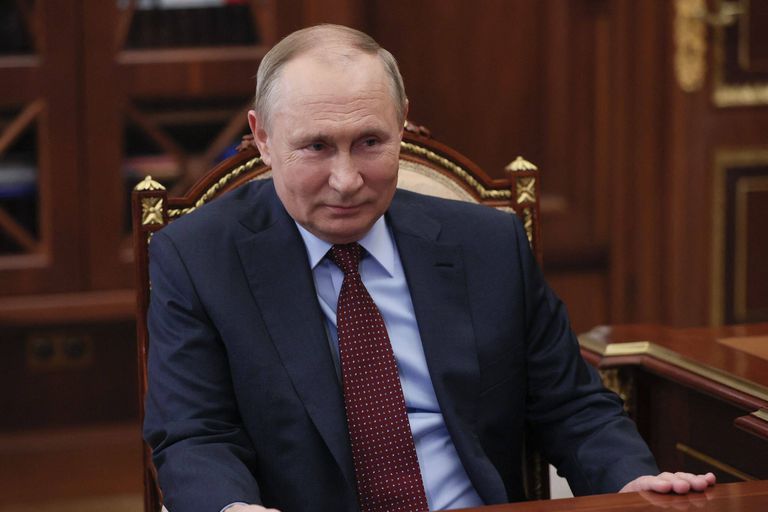In a rare address on Russian state-run TV on Wednesday morning, Russian President Vladimir Putin announced the ‘partial mobilisation’ of some 300,000 reservists to join its invasion of Ukraine. According to the Russian leader, the move was necessary in order to “protect” people in Russian-occupied regions of Ukraine.
“I think it is necessary to support the proposal of the Ministry of Defence and the General Staff to hold a partial mobilisation in Russia… we are talking of a partial mobilisation only – Only people in the military reserve will be drafted,” the Russian authoritarian leader announced.
The partial military mobilisation will begin today, and the Kremlin claims that it will mostly draw from former soldiers who already have experience in the army. During his address, Putin stated it would use “all means” in order to protect its “territorial integrity”, which extends to what he described as “our people” in Donbas.
Once again, the Russian leader repeated unfounded claims that the Ukrainian government was led by “Neo-Nazis”, accusing the West of using Ukrainians as cannon fodder.
Putin has also lent his support to sham referenda being organised on the territory of the self-declared Donetsk People’s Republic, Luhansk People’s Republic, and occupied territories in Ukraine’s Kherson region.
The decision of these referendums, experts fear, could be used as a pretext to further escalate the war and lead Russia to accuse the West of threatening core Russian territory.
In the address, the Russian leader warned his country “would use all means at its disposal to defend Russia if its territorial integrity was threatened.” Putin once again made loosely veiled nuclear threats towards western nations, stating that “those who try to blackmail (Russia) with nuclear weapons should know that the prevailing winds can turn in their direction.”
Scraping the barrel
The announcement is significant because, while Putin claims that Russia has the sufficient equipment that it needs in Ukraine, despite open-source data suggesting huge losses, it is the first public acknowledgement that Russia needs more troops on the battlefield. Putin repeatedly blamed Russia’s failures on the west, but until now, had always insisted that its “special military operation” was going to plan.
The partial mobilisation has caused a great deal of alarm in Russia. Appearing in a pre-recorded message shortly after Putin’s address, Russian Defence Minister Sergei Shoigu has attempted to calm the fears of the Russian public. Notably, he claimed that students would not be used in Ukraine and that conscripts would not be sent to the front, but rather men with battle experience.
Western leaders have been quick to react to the announcement, which some have viewed as a sign of Russian military weakness. US Ambassador to Ukraine Bridget A. Brink said that the “sham referenda and mobilisation are signs of weakness, of Russian failure.”
Related News
- Russian parliament introduces 'mobilisation' into law
- Russian culture in the capital? La Monnaie’s upcoming season in the spotlight
- Belgian federal budget feels weight of war in Ukraine
Likewise, UK Defence Minister Ben Wallace said that the mobilisation order was evidence that Russia was failing in its goal to conquer Ukraine.
“He and his Defence Minister have sent thousands of their own citizens to their deaths, ill equipped and badly led,” Wallace wrote on Twitter. “No amount of threats and propaganda can hide the fact that Ukraine is winning this war.”
Global markets have reacted negatively to Putin’s announcement, which appears to show that Russia intends to drag-out its war in Ukraine indefinitely. The price of gas and wheat rose significantly following Putin’s speech, as well as other natural resources.
European Brent crude has also significantly risen following the announcement, jumping 2% to over $92 per barrel. This will likely have a direct impact on the cost at the pump in Europe, including in Belgium. On the Dutch TTF Gas Futures market, prices jumped over 5%, reaching more than €203 per megawatt hour.

